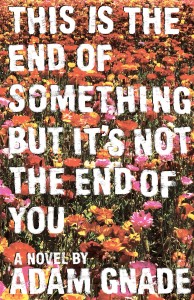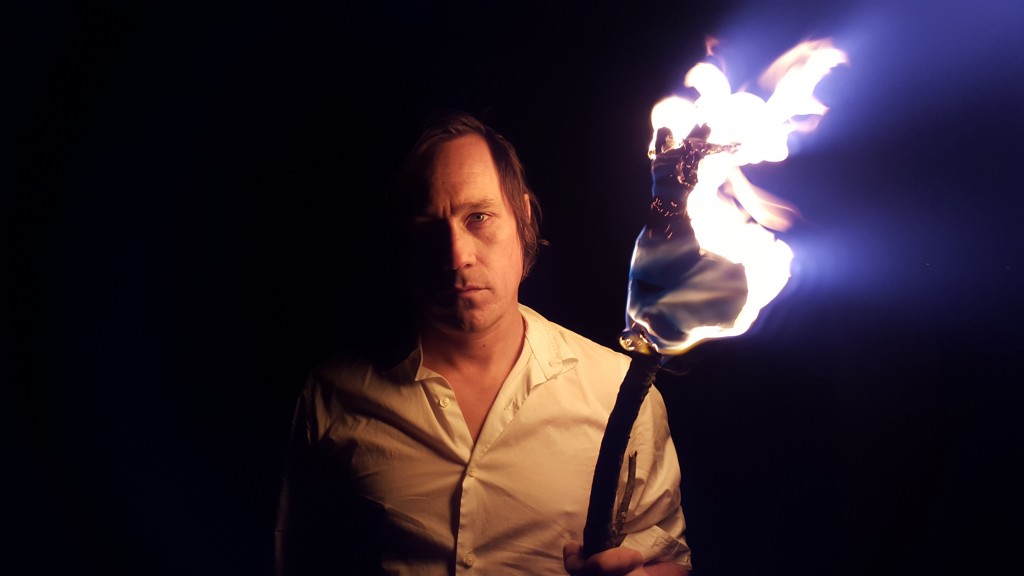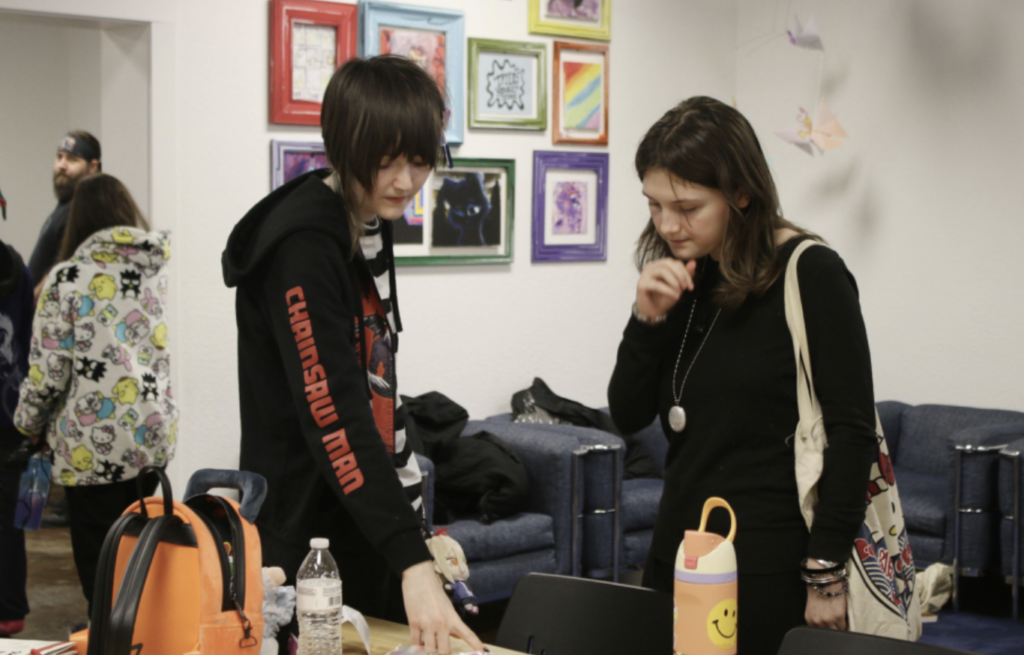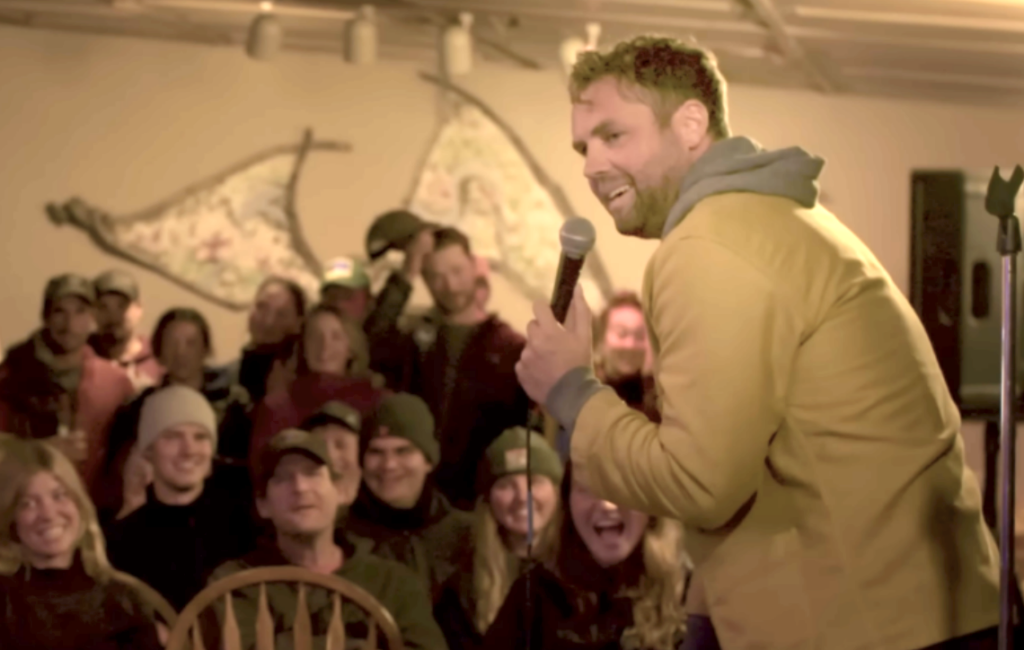Author Adam Gnade on self-self-help
Adam Gnade has never read a self-help book in his life. On the couple of occasions he started to—perhaps unwittingly—he dismissed it after only a few paragraphs.
“I have no patience for self-help or spiritual stuff. I’m not a very spiritual person, at least not in a religious sense,” he says.
So, the release of not one, but two books that smack of self-help came out of left field for the novelist and recording artist who lives on acreage near Tonganoxie, Kansas.
Gnade moved to rural Kansas from Portland, Oregon 11 years ago for perspective and space. Maybe he was seeking a type of geographical therapy, or maybe it was a bid to add light into his life as he struggled with depression.
Even so, not long after that relocation, he was struggling, as were a lot of his friends.
Gnade started writing down survival tips for his and their sanity. Most of the tips found their way into publications prior to 2014, and both those and some newly added tips are now part of two books: The Do-it-Yourself Guide to Fighting the Big Motherfucking Sad (Bread & Roses Press, 2013) and Simple Steps to a Life Less Shitty (Bread & Roses Press, 2021).
They’re not self-help if you ask Gnade. In fact, he thinks they fly in the face of traditional self-help, or work as a response to that genre.
“There’s not any psychological jargon. There’s no new-age platitudes. It sort of cuts a lot of the bullshit, I guess,” he explains.
Among many other things, the books coax readers to be gentler with themselves. In Simple Steps under the heading “Being Good To Yourself Is Not Self-Indulgent,” he writes: “Alright, let’s get the most obvious shit out of the way first. You have to eat—well and healthy. You have to drink a lot of fucking water (a lot more than you probably think you do).”
Gnade says that back in 2012 his life and his friends’ lives seemed to just get worse and worse. Grappling with “existential BS,” depression, general hurt, mortality, and so on, was bogging down their psyches.
While Gnade normally writes auto-fiction, which is also what he prefers reading—thinly-veiled fictional accounts of his real-life and circumstances—with his world crashing down, he didn’t think that would cut it.
“Everyone I knew was sort of in tailspins and nosedives, and imploding and exploding,” he says. “Me being able to give somebody something, and then later on the book, felt a little more worthwhile than just writing stories.”
It turned out that writing with an eye toward making his life better helped him a lot. That’s partly why he decided to gather up the pieces that comprise Simple Steps at this precise moment; mental wellness is a hot topic as the world enters its second COVID-19 autumn.
But, also partly, Gnade has just had more time to sort through projects and complete a lot of new writing—he’s managed four new novels in the space of 18 months.
Moreover, in February of this year, he began a record label called Hello America Stereo Cassette that releases audiobooks and collections of poetry on cassette tapes. He makes one cassette a month. August featured a collective of rural Canadian writers, and soon he’ll release a recording by a man from Yorkshire, England.
Gnade’s recent fiction has featured characters digging themselves out of bad places with tactics very similar to what he offers in Simple Steps and Big Sad.
While Gnade insists he doesn’t take his own advice—he says he’s too close to it now and has probably already internalized it anyway—his fictional avatar, James Bozic, does. James is the hero of more than one novel in Gnade’s written universe that he hopes someday will stand as a sort of personal history of America.
In his novel, one of now seven books, This Is the End of Something But It’s Not the End of You (Pioneers Press, 2020), James, like Gnade, has battled the beast that is depression. He vacillates between self-harm and self-healing until he literally buys a farm and rests in semi-peace.
On Gnade’s real-life farm that he shares with his wife Elizabeth Thompson, life seems to be good. The two were evicted in 2020 from the first farm they lived on near Leavenworth. The owner sold the property out from under them, and, in order to have the space they wanted, they bought a place of their own.

The cover art of This Is The End Of Something But It’s Not The End Of You, released in 2020 by Poineers Press.
Their animal collection wasn’t right for a rental anyway.
“We have, I think, 14 chickens. We lost like half of them to a coyote a few months ago. We have two donkeys who are really nice,” Gnade says. “We just got them this summer. And we’ve got four cats inside, two dogs, and three outside cats.” They also recently released a blue jay they nursed back to health in their attic.
And don’t get him started on the garden.
He says something about the soil helped them have the most amazing garden this summer.
“It’s on the wane right now, but we grew so many things and put up canning jars of tomatoes and freezers full of squash and green beans and carrots. It was just a phenomenal garden,” he says.
The garden fits right in with his advice about eating well, but Simple Steps has a charming bent away from the sort of self-reliance one might expect from a man intent on living off the land.
In fact, he writes, “Rugged individualism is self-sabotage.”
He urges readers, instead, to rely on friends and to ask experts for help.
“Don’t be afraid to reach out to people,” he writes in Simple Steps. “The worst thing you can do in that situation is sit and let your mind run through an endless fucking cycle of, ‘Is this really bad enough to ask for help?’”
And, similarly: “When it feels like the world is ending, you need to find someone to tell you it’s not. Never underestimate the benefit of a fresh perspective.”
That advice is precisely what’s carrying him through the pandemic. In the spring of 2020, he was under the impression that he was already a very solitary person, writing alone for hours on end. However, having suffered through two waves of the pandemic and experiencing true isolation out on the farm, he realizes that he actually was very sociable pre-pandemic.
“It’s like one of the things you don’t really notice what you have until it’s gone,” he says. “I probably still was more socially isolated than most people, but at the same time, I’m noticing all the things that I’m not doing now, which is, you know, kind of hard.”
In Simple Steps, Gnade urges “communal work (and work in the service of others)” as a remedy. He goes so far as to instruct his readers to get out a Sharpie and write, “Your friends will carry you home,” on their office supplies.
And he certainly does take this advice. Even if socializing is still a trick, Gnade makes trips to town for provisions and chats with people in stores.
He says, “Every single one of those interactions—I’ve left feeling stronger and more energetic and more hopeful.”






